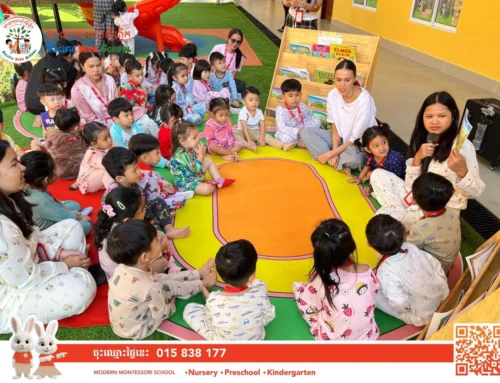In every Cambodian classroom, confident students who ask questions, solve problems on their own, and take initiative tend to thrive. But this independence doesn’t begin at school—it starts at home. With the right guidance and encouragement, parents can play a powerful role in raising independent learners in Cambodia, helping their children grow into motivated, responsible, and curious individuals.
Here’s how you can support independence and a love of learning—regardless of your child’s age, school type, or academic level.
1. Encourage Responsibility Early
Even small tasks build independence. Give your child age-appropriate responsibilities, such as:
-
Packing their school bag
-
Setting the table
-
Watering plants or feeding pets
These everyday activities teach children to take initiative, follow steps, and feel a sense of ownership—skills that directly support academic growth.
2. Create a Home Environment That Supports Learning
A quiet, clutter-free space with basic supplies can go a long way. It doesn’t need to be fancy—just a consistent area where your child can focus on reading, writing, or homework.
Make learning part of your daily routine:
-
Set a regular time for homework or reading
-
Let your child work without always offering immediate help
-
Encourage breaks to support focus and energy
This builds self-discipline and reduces reliance on adults for every task.
3. Let Them Solve Their Own Problems (With Support)
It’s tempting to jump in when your child struggles. But giving them time to try, fail, and try again builds resilience and problem-solving skills.
Instead of giving answers, ask:
-
“What do you think you should do?”
-
“What’s another way to solve this?”
-
“How can you check your answer?”
Your role becomes that of a guide—not a fixer.
4. Praise Effort, Not Just Results
Focusing only on high scores or perfect answers can make children afraid of failing. Instead, praise the process:
-
“I’m proud of how hard you worked on this.”
-
“You didn’t give up, even when it was tricky.”
-
“I saw how you tried different ways to finish it.”
This encourages a growth mindset, where effort and learning matter more than perfection.
5. Give Choices and Let Them Make Decisions
Offering small choices helps your child feel trusted and capable. For example:
-
“Do you want to do reading or math first?”
-
“Would you rather study in the morning or after dinner?”
Decision-making builds confidence, accountability, and time management—critical skills for independent learners.
6. Encourage Curiosity and Questioning
Independent learners ask “why,” “how,” and “what if.” You can nurture this by:
-
Answering questions patiently (or researching together)
-
Visiting libraries, museums, or cultural sites
-
Using real-life situations—cooking, shopping, gardening—as learning opportunities
These simple experiences turn your home into a space for exploration and critical thinking.
7. Celebrate Progress, Not Just Grades
Whether your child reads a new book, learns to tie their shoes, or studies without reminders—celebrate the effort. These moments build pride and motivation to keep learning independently.
Raising independent learners doesn’t require perfect English, expensive tutors, or a background in education. With trust, routines, and encouragement, Cambodian parents can shape confident students who take charge of their learning journeys—at school and beyond.
If the information about the school is not accurate and insufficient, Contact us.
Do you want to register your school? Click here.







